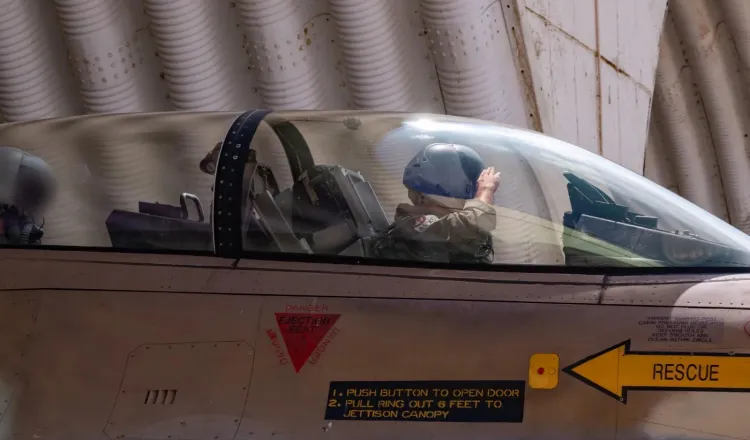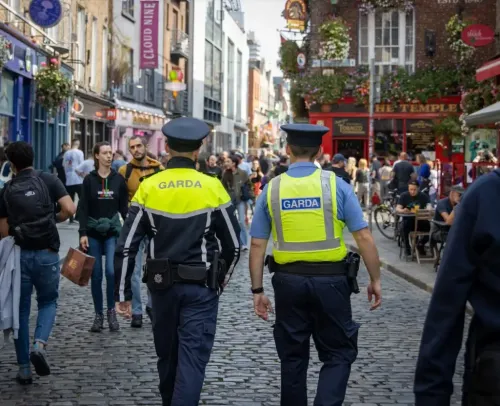Did the IDF Target the Syrian Regime's Military Headquarters?

Synopsis
Key Takeaways
- The IDF struck the Syrian military headquarters in Damascus.
- Monitoring of threats against Druze civilians continues.
- Recent airstrikes targeted military assets heading towards Sweida.
- A ceasefire was announced, but tensions remain high.
- Recurring violence highlights the fragile security situation in the region.
Jerusalem/Damascus, July 16 (NationPress) The Israeli Defence Forces (IDF) announced on Wednesday that they targeted the entrance of the Syrian regime's military headquarters located near Damascus, Syria.
The IDF stated, "We are actively observing the situation and the regime's actions against Druze civilians in southern Syria. Following instructions from the political leadership, the IDF is conducting strikes in the region and is ready for various scenarios," as reported on X.
In the past day, Israeli Air Force jets have also struck tanks, rocket launchers, arms depots, and trucks outfitted with heavy machine guns that were heading towards the Sweida region in southern Syria.
According to the IDF, "Based on the current assessment, we have decided to bolster our forces along the Syrian border near the fence," the statement on X noted.
Earlier reports indicated that numerous Druze citizens from Israel crossed into southern Syria from the Golan Heights, amidst clashes between Druze fighters and troops of the Syrian interim government.
On Tuesday, the Syrian defence minister declared a ceasefire in Suweida, stating an agreement was reached with local leaders for the deployment of security forces there, as reported by Xinhua news agency. However, a Druze spiritual leader urged local fighters to continue their resistance.
Following the Syrian forces' deployment, the Syrian Observatory for Human Rights accused government troops and their allies of executing at least 19 Druze civilians, including 12 at a family guest house.
This conflict traces back to an earlier incident where a young Druze man was assaulted and robbed by armed Bedouins at a temporary checkpoint near al-Masriyah. In retaliation, local Druze fighters captured several members of the Bedouin community, which intensified the conflict.
Last Saturday, residents heard heavy gunfire and shelling in the city, which forced many to stay indoors and led community leaders to urgently call for intervention to de-escalate tensions.
Recent months have seen recurring incidents of kidnapping and armed assaults along the crucial road connecting Sweida to Damascus. Locals attribute the violence to the worsening security situation and the lack of state authority over armed factions.









